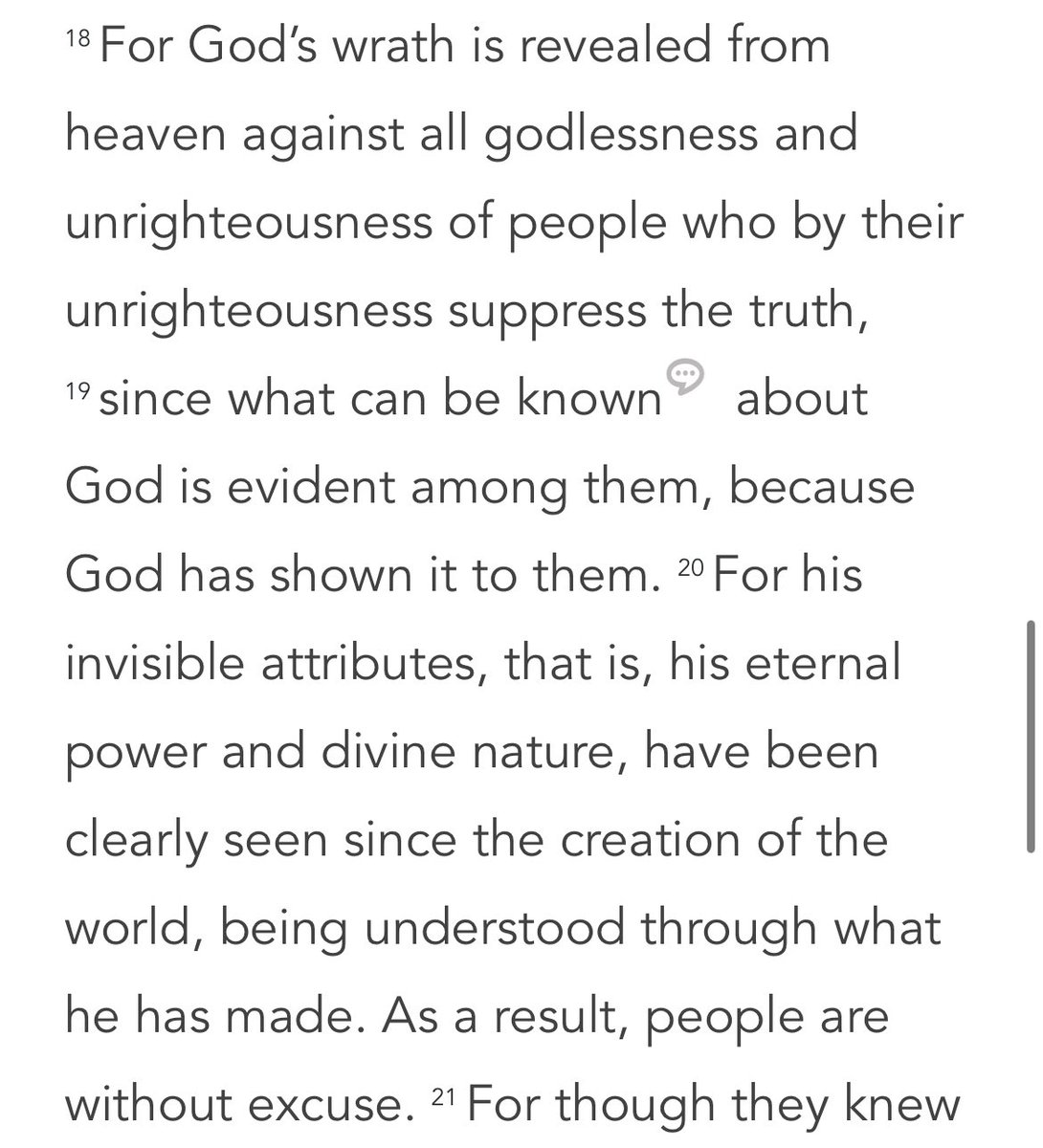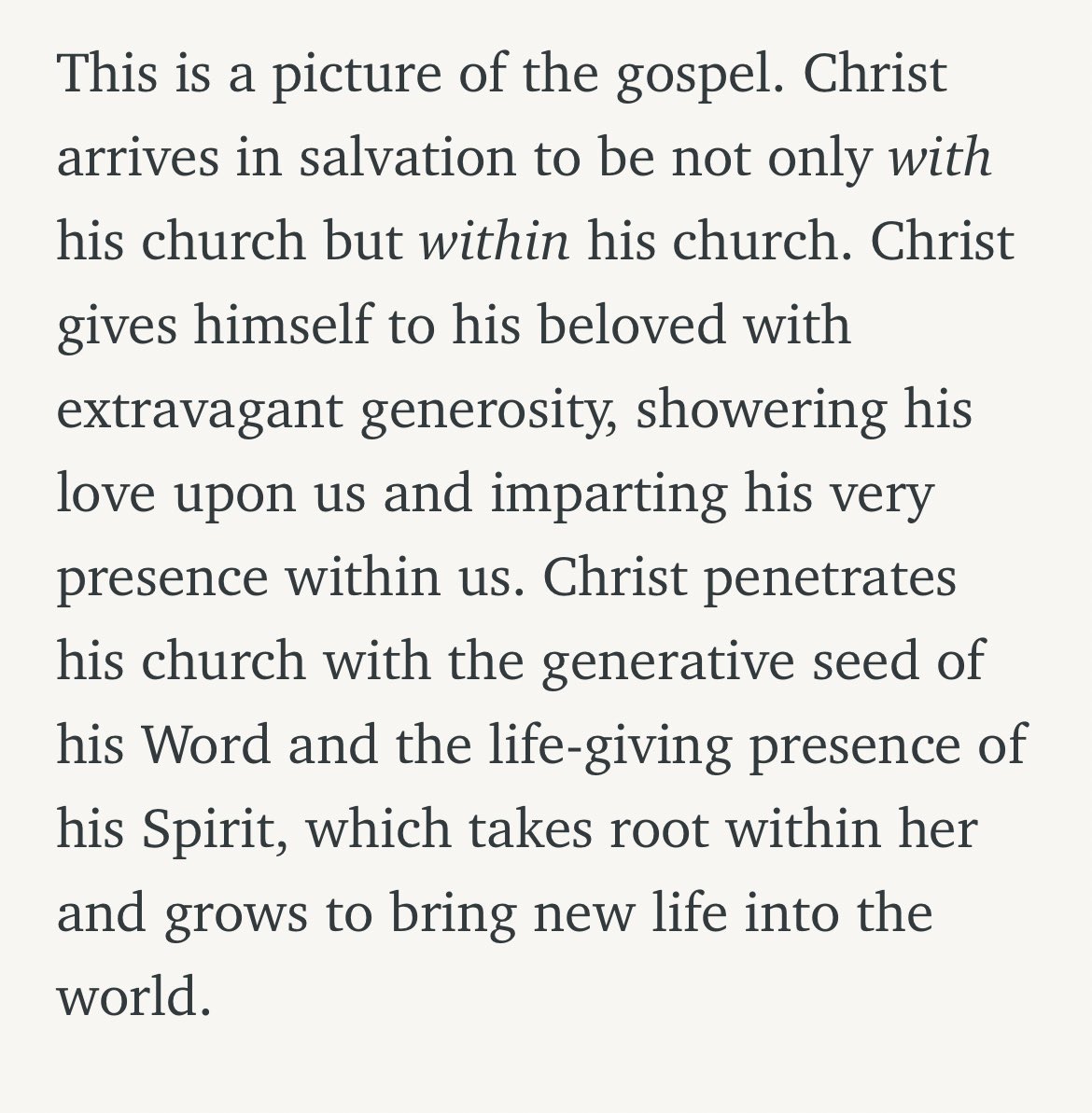
Beautiful Union Intro & Ch. 1 Review 🧵:
This could be so much longer, but I’ll stick to my core issues.
This confusion of theology is being fed by, I believe, letting creation inform the creator more so than the creator informing the creation.
1/
This could be so much longer, but I’ll stick to my core issues.
This confusion of theology is being fed by, I believe, letting creation inform the creator more so than the creator informing the creation.
1/
This is a point I briefly made in my original 🧵, though in the first 🧵 I focused on how over-extending a metaphor can become a big problem.
It took reading the entire intro and first chapter to really get how much this observation is the core of the many problems.
2/
It took reading the entire intro and first chapter to really get how much this observation is the core of the many problems.
2/
https://twitter.com/johnandrewwords/status/1631312554688487424
Butler calls sex an icon or iconic over two dozen times before the end of Ch. 1. He also calls sex a “symbol for something greater” and I’d agree with him on that point. So, does Butler mean that sex is a metaphor or a symbol by calling it an icon, or something more?
3/
3/
Historically, icons were more than images depicting the divine. Rather, they were images depicting the divine for the purpose of focusing, enhancing, and informing worship. They were seen as more than art, but as windows into the divine.
4/
4/
Icons were rightly seen by the Reformers as idolatry as they focused the worshipers’ mind and heart on dead creation rather than the true and living God. They did not aid in the worship of God so much as they competed with, interfered with, and tarnished true worship.
5/
5/
This is why, with few exceptions, the use of icons (again, not just art or decoration) has been widely and consistently opposed in the Protestant tradition. This is especially true within the Reformed heritage.
6/
6/
Many go further and tie all icons to breaking the second commandment, and I tend to agree that they’re often, though not always correct on this point. Depending on the use and the specific image, icons are often a second commandment violation.
7/
7/
But it’s also worth noting that Clement of Alexandria, Tertullian, and other early church fathers sternly rejected icons as having any “sacred” nature or for any aid in worship. This opposition to icons is soundly Protestant, but also has roots in the Early Church.
8/
8/
So when Butler says that sex is an icon, I want to know exactly what he means. Sadly, it seems to be clear that Butler is using the term in the same way the Roman and Eastern churches use the term. Sex, to Butler, is more than a symbol or a metaphor, but a “sacred window.”
9/

9/


According to Butler’s understanding of sex and icon, sex is meant to reveal to us truth about God.
This is where I should mention natural revelation. It’s true that nature can show us truth and teach us many things.
10/
This is where I should mention natural revelation. It’s true that nature can show us truth and teach us many things.
10/

But there’s a profound difference between nature revealing truth and nature becoming sacred. When we rightly say that marriage and sex is spiritually packed and points us to Christ, we are not making a deep metaphysical connection between the act of sex and the divine.
11/
11/
Though in one colloquial sense we can say that sex is sacred in that it is of spiritual significance and should be honored, in a more technical sense sex is natural. Likewise, though sex is of common grace, it is decidedly not of special saving grace.
12/
12/
Butler moves beyond using sacred in the colloquial sense in making sex into a mystical icon. In a very real sense, his view of sex is a sort of sacramentalizing of sex. It’s turning the natural, albeit good, into a special means of grace.
13/
13/
And we can see this conflation of ideas throughout this section of the book. E.g., the male orgasm is likened to receiving the Word of God and the Holy Spirit (regeneration), using sex as a way to show the saving grace of God, etc. @RScottClark has been great on this point.
14/
14/

But the salvation metaphors used by Butler soon fall apart. It seems that multiple things are tied loosely to regeneration or receiving the spirit. First it’s the male orgasm, but then later a husband pleasuring his wife is an icon of salvation.
15/
15/
We are taught that Jesus penetrates us because one Hebrew usage of a phrase sometimes means “enter.” Important to note that Butler does no serious word-study work here, but rather just asserts the “literal” meaning. The actual Hebrew phrase can just as easily mean “come to.
16/
16/
Butler also supports this by texts teaching that Christ is in his Church. But at the end of the chapter Butler joyously celebrates that there’s also texts teaching that we are also in Christ. Texts that he didn’t bring up when forming his argument.
17/
17/
Now, this is more than what Carson would call Parallelomania, though it’s certainly not less than that. There’s a wide and broad application of concepts with little to no textual basis. Often it’s based on one word taken in a very specific (and I’d say cherry picked) way.
18/
18/
But what Butler does is more than Parallelomania (a fallacy in its own right). What he does is destroy the basis of his own argument. If we are also in Christ, what exactly is the basis for the bulk of the first chapter that centers on stressing man/Jesus “entering?”
19/

19/


Further confusion is added in his articulation of the Gospel. At one time we are both passive and participatory, without any clear indication of the difference.
This language sounds synergistic, especially in a section explicitly about special grace.
20/
This language sounds synergistic, especially in a section explicitly about special grace.
20/

All in all, I do not know if Butler is truly confused on the Gospel and other basic theological distinctions, but this chapter certainly makes him look confused.
But why the confusion?
It goes back to sex being an icon.
21/
But why the confusion?
It goes back to sex being an icon.
21/
Though nature can inform us of the divine, when we center our theology on natural revelation we will all-to-likely create a theology based on our own knowledge and experience as opposed to God’s special revelation. I.e., primarily, God’s Word.
22/
22/
Through religious veneration of icons, glory and honor were stolen from God and given to man. Icons are, historically, man-centered idolatry. And nothing as changed.
23/
23/
Though Butler tells his readers to not make sex into an idol, in the same pages he tells us sex is an icon.
@TGC has published on this error before and I’d call on them to remember their heritage and God’s law concerning idolatry.
thegospelcoalition.org/themelios/arti…
24/
@TGC has published on this error before and I’d call on them to remember their heritage and God’s law concerning idolatry.
thegospelcoalition.org/themelios/arti…
24/
Sex is good.
It is not an icon.
Sex has spiritual significance.
But it’s, ultimately, natural. A good gift from God, and like all gifts, a potential object of perversion or idolatry.
25/
It is not an icon.
Sex has spiritual significance.
But it’s, ultimately, natural. A good gift from God, and like all gifts, a potential object of perversion or idolatry.
25/
• • •
Missing some Tweet in this thread? You can try to
force a refresh















